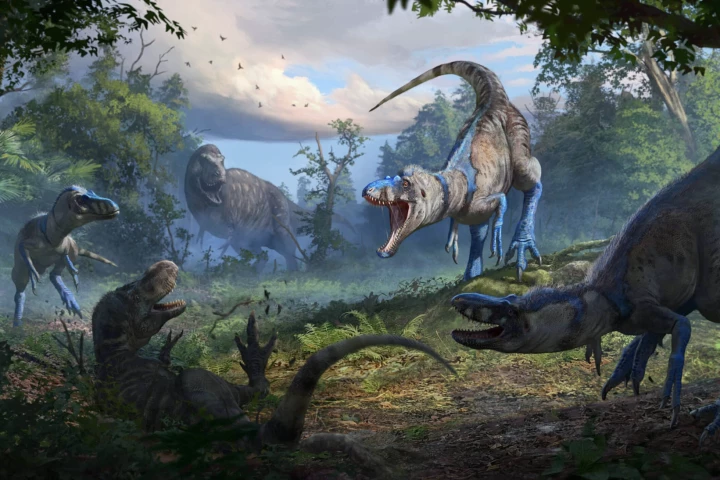Science
The latest in science news, from the depths of space to the quantum realm.
Top Science News
-
High on sheer cliffs in China, ancient coffins are wedged into rock faces hundreds of feet above the ground. These dramatic burials, now re-examined using ancient DNA, point to a broader practice where disparate cultures all had their own "sky graves."
-
Dinosaurs may be long extinct, but 2025 made it clear that they’re anything but settled science. New fossils, reanalyses of famous specimens and increasingly sophisticated tools have helped us learn more about how they lived, moved, fed and evolved.
-
Two billion years before we made history and split the atom, the Earth had already accomplished it and was running its own nuclear reactors. And they operated for hundreds of thousands of years, as the first signs of multicellular life emerged.
Load More
Latest Science News
-
The world’s oldest known vertebrates had two pairs of eyes
February 16, 2026 | Jay KakadeThe earliest ancestors of all backboned animals, including humans, may have viewed the world with four eyes, not just two, according to a new study. The remnants of those extra eyes persist deep in the human brain today as the pineal organ. -
Humans in space: Are astronauts obsolete?
February 15, 2026 | David SzondyThe Artemis II mission, which will return US astronauts to lunar space, has run into problems that have critics demanding NASA remove the crew from the flight for safety reasons. The bigger question is, why do we have astronauts at all? -
Forests glow under UV light, and deer can see it
February 10, 2026 | Jay KakadeFor the first time, researchers have tracked how deer use photoluminescent markers as signposts on trees to communicate with one another. Their unique visual acuity allows them to see in ultraviolet wavelengths invisible to human eyes. -
New technique targets 'sweet spot' to destroy bacteria
February 10, 2026 | Michael FrancoResearchers have discovered a certain kind of sugar that is only found on the surface of bacteria. Targeting it could lead to an entirely new class of immunotherapeutic drugs designed to target and eliminate at least one deadly, drug-resistant bug. -
Starlink moonlights as satellite traffic cop
February 07, 2026 | David SzondySpaceX's Starlink communications satellite constellation is doing double duty as the company announces that it's moonlighting as the Stargaze Space Situational Awareness system that can track and manage traffic in low Earth orbit. -
8,000-year-old pottery suggests math predates writing
February 07, 2026 | Jay KakadeWe generally associate the origins of mathematical thinking with the emergence of writing but a new study challenges this assumption looking at floral designs found on the pottery sherds across northern Mesopotamia, dating back 8000 years. -
Plants that touch each other are more resilient to stress
February 07, 2026 | Jay KakadeNew research has found when plant leaves physically touch each other, they seem to form a biological signalling network to warn each other about upcoming stress. This boosts resilience to intense light, a common environmental challenge. -
Wood polymer gives thermal paper an eco-friendly makeover
January 31, 2026 | Maryna HolovnovaNowadays, wood is rapidly becoming a valuable material in the renewable tech industry, replacing many harmful materials. Recent research shows that wood-derived compounds can serve as an alternative to the toxic chemicals used in paper receipts. -
CERN supercollider gets sustainable side hustle heating local homes
January 30, 2026 | David SzondyOkay, CERN's Large Hadron Collider (LHC) might have uncovered the Higgs boson and helped redefine our concept of physical reality, but what has it done for us lately? How about a side hustle heating several thousand homes in the neighborhood? -
New system turns smartphones into radiation detectors
January 28, 2026 | Michael FrancoResearchers at Hiroshima University in Japan have developed a way to leverage the cameras on smartphones to provide accurate radiation readings. The system they created costs less than $70 and could be a big help in disaster situations.
Load More












